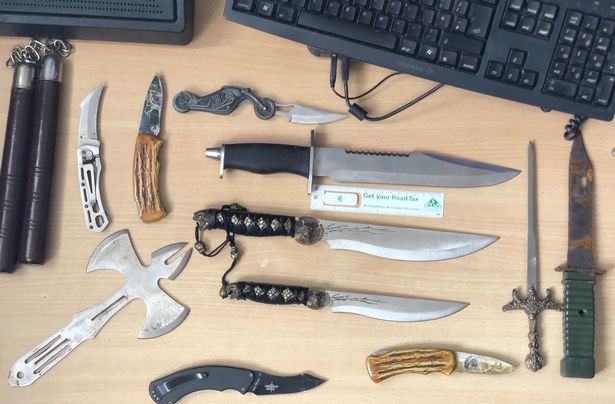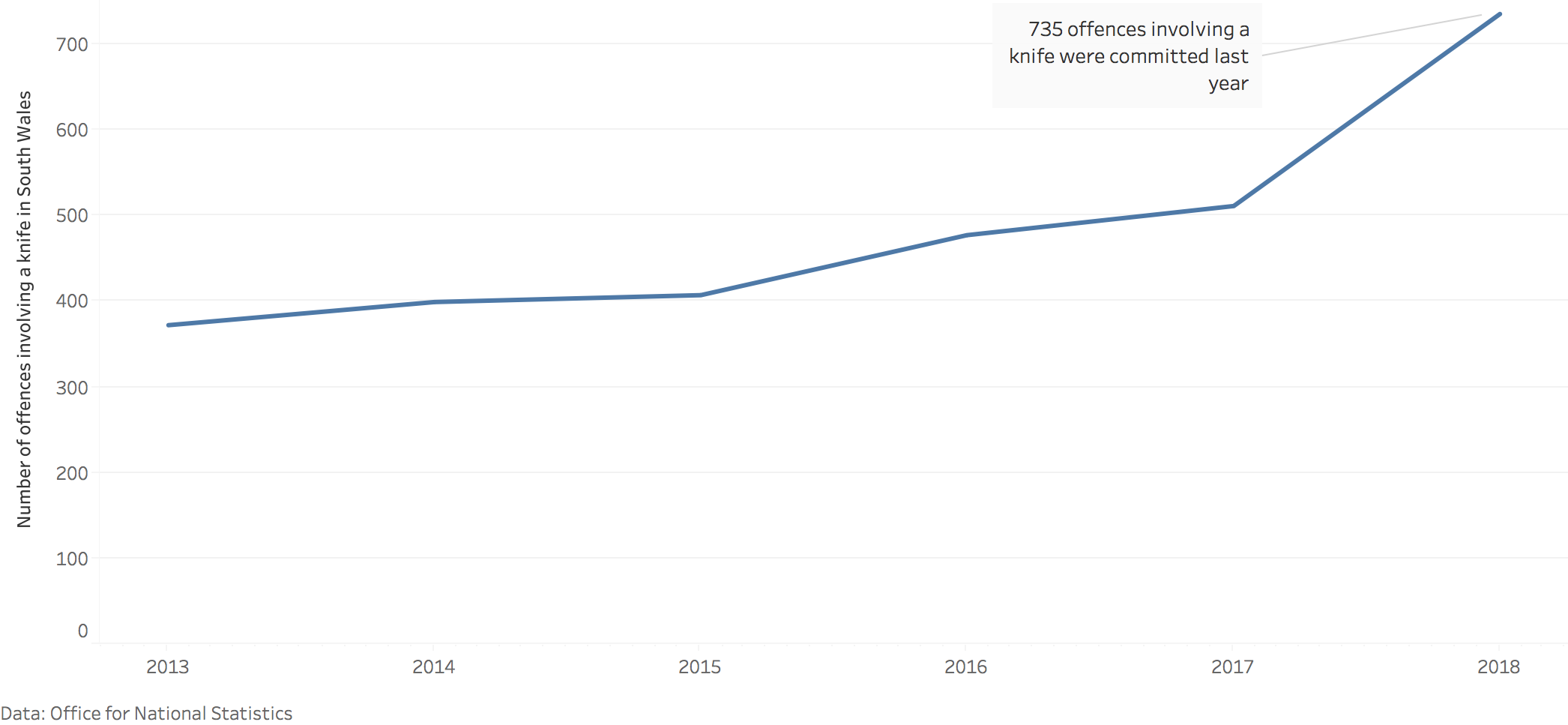
KNIFE crime has risen 30% in one year in South Wales and has nearly doubled since 2013.
There were 735 knife-related offences from October 2017 to September 2018, compared to 511 the previous year, latest figures from the Office for National Statistics reveal.
In 2013 there were 372 incidents, which means a 49% rise in five years.
What’s behind the rise?
“We need to understand why young people would make that terrible choice to carry a knife and feel it is normal and acceptable to do so – because there is no justification for it,” said Superintendent Joanna Maal, the South Wales Police lead for tackling knife crime.
Assault accounted for 482 of knife incidents while threats to kill numbered 47. There were five charges for homicide connected to knife-crime.
Superintendent Maal said: “We are determined to push back at those individuals and groups that use weapons to support their criminality, especially where the most vulnerable are put at risk.”
Welsh Crimestoppers – a charity designed to prevent crime – are tackling the problem by launching a new campaign in South Wales: ‘Cut the chance of being hurt by knife crime’.
National Manager for Wales Crimestoppers Ella Rabaiotte said: “We help to deter individuals from carrying knives and also take information about those who choose to regularly carry weapons.
“Our campaign encourages those who know about someone regularly carrying a knife to tell our charity what they know 100% anonymously.”
Connecting with young people is crucial, says Mrs Rabaiotte.
“To engage with the youth audience and tackle the under-reporting of crime by young people, Crimestoppers promotes its Fearless.Org youth service to educate and empower young people to speak up about knife crime and areas of criminality where serious violence or its threat is inherent, such as in gangs and county lines drug dealing,” she said.
The National Crime Agency – law enforcement that targets organised crime – links a U.K. trend of increasing knife violence to emerging county lines.
County lines refer to the use of young children to traffic drugs from main cities around the U.K.
“County lines groups impose high level of violence, including the prevalent use of weapons and firearms to intimidate and control members of the group and associated victims,” a 2017 NCA report into county lines said.
Many of the drug mules are victims themselves.
“County lines involve the exploitation of multiple young people or otherwise vulnerable people,” the NCA says.
The report added: “County lines groups impose high levels of violence, including the prevalent use of weapons and firearms to intimidate and control members of the group.
“Victims are often not willing to assist in the prosecution through fear of further reprisal.”
South Wales Police’s ‘Operation Sceptre’ attempts to thwart knife-crime.
Superintendent Maal said: “Under the banner of Operation Sceptre, South Wales Police has put in place a number of operation measures, so that we can address any concerns communities may have and clamp down on those who are carrying and using knives.
“This is not a one-size-fits-all tactic, but something that will ensure each area takes a specific, targeted and intelligence-led approach to tackling and responding to the needs of their respective communities.
“Knife crime remains rare for the vast majority of communities in south Wales but this does not mean we are complacent. For instance, in the 10 months between April 2018 and January 2019, more than 8,800 stop searches – an intelligence-led tactic we use to tackle this important issue – have been carried out.
“Most communities, most of the time, will not be touched directly by knife crime. Mercifully, this is not a crime at levels seen by major cities, but we need to be constantly determined to push back at those individuals and groups that use weapons to support their criminality, especially where the most vulnerable are put at risk as a result.”
- You can call Crimestoppers on 0800555111
- Ring the police on 101, or 999 for an emergency


